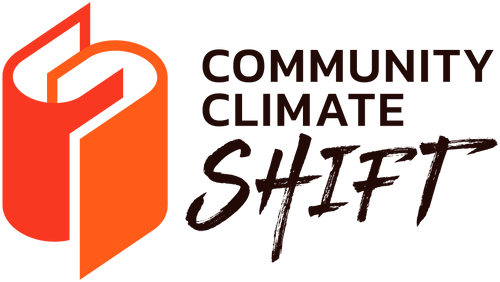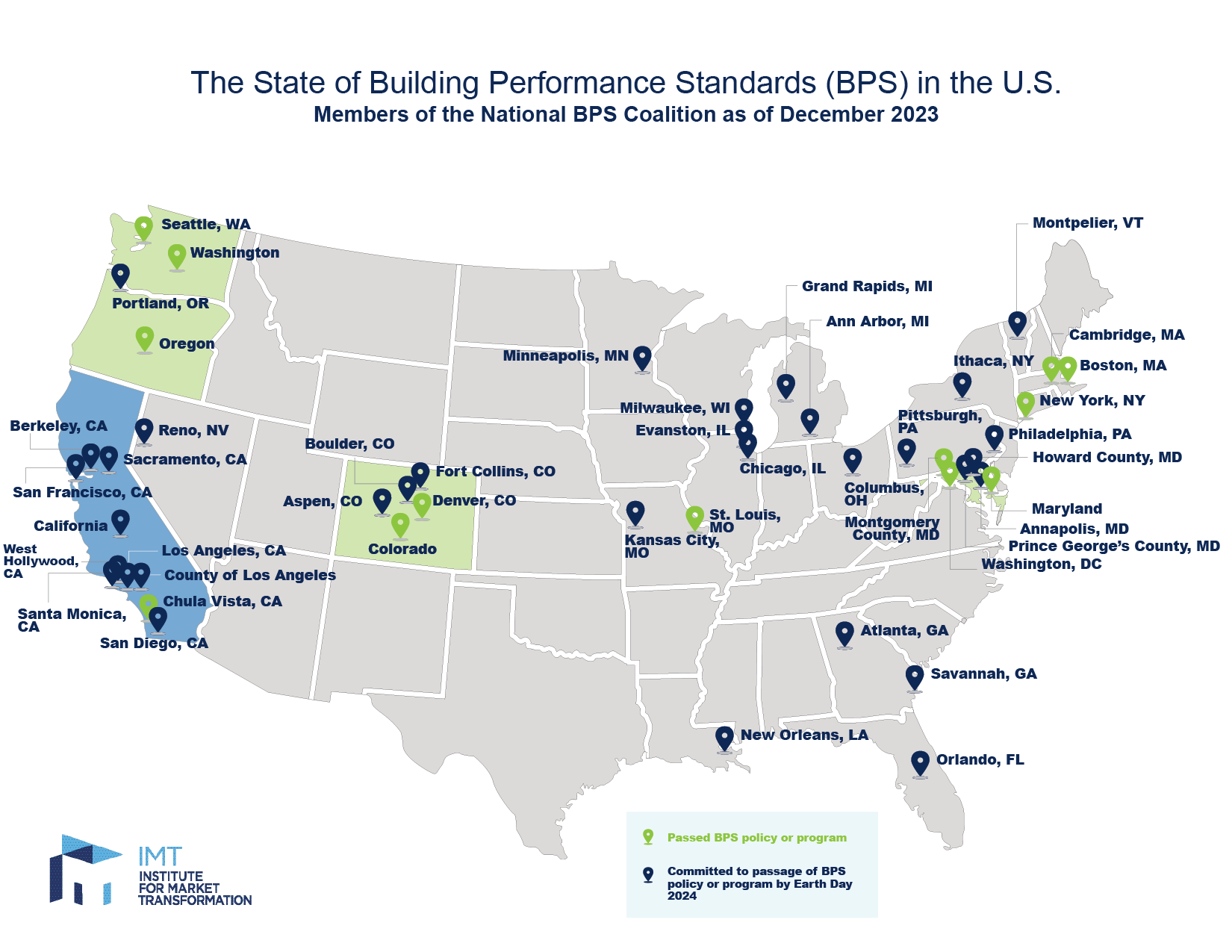Every jurisdiction—local, state, or federal—has a role to play in creating better buildings. Public policy that is developed in collaboration with real estate and community representatives is a key path to making this happen.
At IMT, we believe that building performance policies can:
 |
Increase community representation and power via democratized policy development processes. |
 |
Drive action toward a community’s climate goals. |
 |
Improve quality of life by protecting building occupant health and promoting energy affordability and economic inclusiveness. |
 |
Provide building investors, operators, owners, and tenants certainty of performance over the lifetime of a building. |
 |
Advance building electrification and clean energy while optimizing grid resilience and disaster response. |
How We Work
Every jurisdiction is unique and there is no one-size-fits-all solution. IMT excels at charting the path from where real estate is today and identifying common pillars from which most jurisdictions can work with their communities and businesses to customize public policies and reach win-win outcomes. Our work has produced model ordinances and policy development processes that serve as centralized starting points that any jurisdiction can customize in collaboration with its stakeholders to maximize local impact.

Our experts are on-call to provide tailored, one-on-one guidance to help policymakers craft building performance policies and programs that will drive action in their jurisdiction while meeting community needs. In a number of pioneering jurisdictions such as New York City, Washington, D.C., the 20 cities in the City Energy Project, and the 20+ cities in the Bloomberg American Cities Climate Challenge, IMT has helped embed and support experts that provide critical leadership in accelerating the development and passage of building performance policies.

IMT is guided by the principle of working with others to maximize impact. We focus on building and activating coalitions to share peer-to-peer knowledge, democratize the policymaking process, and identify and produce shared outcomes.

What Our Work Looks Like
 IMT is a strategic and technical partner to state, local, and federal government leaders, supporting their efforts to increase stakeholder engagement and advance next-generation building decarbonization policy solutions. IMT served in a leadership role in the City Energy Project, a $20 million, multi-year initiative that provided human and financial resources to major U.S. cities to improve the energy efficiency of buildings, and is a partner in the Bloomberg American Cities Climate Challenge, a $70 million program funded by Bloomberg Philanthropies that supports bold climate action in 20+ U.S. cities. Policies that IMT has helped design or implement now touch more than 10 billion square feet of commercial and multifamily space across the United States.
IMT is a strategic and technical partner to state, local, and federal government leaders, supporting their efforts to increase stakeholder engagement and advance next-generation building decarbonization policy solutions. IMT served in a leadership role in the City Energy Project, a $20 million, multi-year initiative that provided human and financial resources to major U.S. cities to improve the energy efficiency of buildings, and is a partner in the Bloomberg American Cities Climate Challenge, a $70 million program funded by Bloomberg Philanthropies that supports bold climate action in 20+ U.S. cities. Policies that IMT has helped design or implement now touch more than 10 billion square feet of commercial and multifamily space across the United States.
IMT is a connector, bringing together the needs and input of community organizations and local real estate business leaders to help identify what market supports are most needed to ensure that buildings make progress toward climate, social equity, and community health and resilience goals. Examples include a long-term partnership with the District of Columbia’s Sustainable Energy Utility; pioneering the Building Innovation Hub in Washington, D.C.; creating financing guides for retail property owners and tenants; working to inform how chambers of commerce can increase outreach to small and medium buildings to improve performance via the Small Business Energy Initiative; and creating toolkits on how transform static building performance data into active tools.
 Making building energy codes progressively smarter and stronger is one of the most effective ways to decarbonize buildings. Improving energy code adoption and compliance is central to IMT’s DNA, dating back to the organization’s founding more than 25 years ago. IMT continues to advocate for better building codes through model code development, advocacy, training, and research.
Making building energy codes progressively smarter and stronger is one of the most effective ways to decarbonize buildings. Improving energy code adoption and compliance is central to IMT’s DNA, dating back to the organization’s founding more than 25 years ago. IMT continues to advocate for better building codes through model code development, advocacy, training, and research.

From rate structures and customer engagement efforts to infrastructure investments and sourcing decisions, utilities play an important role in equitably decarbonizing buildings and creating resilient places to live, work, play, and connect. IMT connects customers—whether they are building owners and managers, government leaders, or community members—with utilities in ways that foster more frequent and open dialogue to improve utility service delivery.

IMT is committed to helping advance an equitable, Just Transition by driving the co-development of building-focused public policy that identifies and addresses the challenges, priorities, and aspirations of frontline communities through meaningful community engagement.

IMT’s Corporate Engagement Opportunities Program
Learn more about how to prepare yourself and your clients for building performance policies, avoid non compliance fees and risk from policy exposure, save time on self-education, and stay competitive in your offerings with resources from IMT’s Corporate Engagement Opportunities program.


